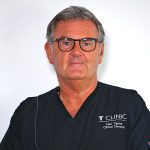Neurosurgery is the medical niche pertaining to the nervous system, in particular the brain and spinal cord, and medico-legal cases related to this field can involve a number of scenarios, as explained below by our next expert witness.
Lawyer Monthly here talks to Helen Fernandes, a top tier senior specialist in the UK’s neurosurgery landscape, and an expert witness often called upon to report on cases surrounding this niche sector. Helen gives a great example of a case that explains her expert witness role, and gives the ins and outs of the challenges and complexities involved in her work.
What are the most common cases you deal with in neurosurgery instructions?
My medico-legal (ML) practice is very varied, from neck and back personal injury cases, to catastrophic brain and spinal cord injury cases, negligence work and criminal murder cases involving head injury. Having an interest in paediatric neurosurgery means that I am involved in a lot of non-accidental injury cases.
What kinds of complexities are involved in providing neurosurgery analyses for the court?
Some cases are straightforward and are often just simply a statement of fact with consideration to condition and prognosis. Other cases may be much more complex; for example contributory negligence from a head injured individual who was not wearing a helmet, life expectancy after a devastating head injury in a child, or causation in terms of outcome from a delay in diagnosis. The list can go on, but the right answers involve good joint discussions and understanding between lawyers and doctors.
As an expert witness in neurosurgery, to what extent do you get to engage the full capacity of your expertise? Do you have an example?
I was involved in a criminal murder case some years ago. A drunk driver had driven his vehicle off the road, crashing it into a ditch. He absconded from the vehicle, leaving an unconscious passenger. The car and the dead passenger were found the next morning. At post mortem it was found that the passenger had not died instantly during the crash, but perhaps had lived for 4 hours afterwards. It was alleged that if the driver had called an ambulance at the time of the incident, the passenger would still be alive; at the time he would have been taken to hospital and thus alive later.
I was instructed for the Defence. I set about an analysis of the head injuries sustained by the passenger to include the prognosis, even if he had been afforded hospitalisation and treatment. I felt the injuries were in the most part unsurvivable. However, I also researched ambulance transfer times and the time it would have taken to get the passenger to the nearest Neurosurgical Unit, given he would have been taken to his local hospital first. All trauma unit audits and neurosurgical admission data pointed to the fact that it would take an absolute minimum of 4 hours to transfer the injured passenger to a Neurosurgical Unit, the average was much higher. Therefore even if the driver had alerted the emergency services to his passenger’s condition immediately, on the balance of possibilities, the passenger would have died before any treatment could have been given, and my evidence further indicated that that treatment would have been fruitless. The Defendant was acquitted.
What makes you the go-to expert witness in this field?
As a now senior neurosurgeon, I have a wide range and depth of expertise to draw on for my ML work; I have a critical and open mind; and I read widely and construct my opinions with care and reflection. My reputation as a leading, able and respected neurosurgeon adds gravitas to my opinion.








